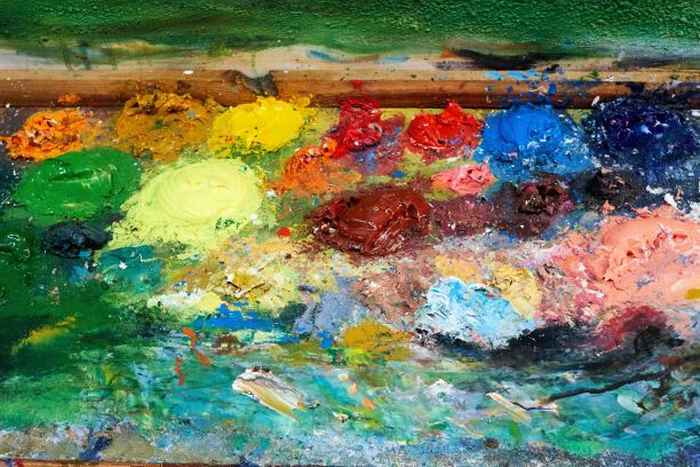Relational subjects, objects and institutions: Artistic Convergences between Latin America and Europe in the Postwar
16 November 2022

Relational subjects, objects and institutions: Artistic Convergences between Latin America and Europe in the Postwar
Conference organized by Elize Mazadiego and Felipe Martinez | Deadline for abstracts 6 January 2023
| Start date | 8 June 2023 |
|---|---|
| End date | 9 June 2023 |
Despite the apparent postwar reordering of power and influence towards New York, between 1962 and 1976 an influx of artistic exiles left Latin America for Europe. Their orientation was de-centered, opting to move to the Netherlands, the UK, Italy, among other dispersed locations, but also settling in France. Their motivations for migrating were varied and complex. While dictatorial repression was often a factor, artists were attracted to other social, political, economic and cultural alternatives. The artistic practices and work that developed from their displacement mirrored their own mobility, with poetic and experimental correspondences, collaborations and networks set in motion across Europe and between Latin America.
Inversely, European artists were attracted to Latin America as institutions, like MAC-USP (formerly the Museum of Modern Art of São Paulo), built their collections of modern European art and the Biennial of São Paulo offered international participation and reception. One such example is the case of Dutch painter Frieda Hunziker, who exhibited the abstract painting Insects (1953) in the second edition of the Biennial. The same work was eventually donated by the Dutch Colony in São Paulo to MAC-USP’s collection. Other artworks by artists of different European nationalities followed similar routes, ultimately ending up in the museum's collection.
These examples point to the circulatory nature of both artists and artworks that contributed to multicentered pathways and dynamic trajectories between Latin America, Europe and the larger world after 1945. This two-day symposium explores the trajectories of thought, material exchanges and cultural transfers between Latin America and Europe from 1945-1980, and the kinds of transformations that emerged from such circulations. In contrast to the linear perspectives that have characterized the dialogues and exchanges, this symposium aims towards a non-centrist view and relational paradigm that can challenge persistent binaries between so-called centers and peripheries, local and global. Such a topic of focus is part of the interdisciplinary shifts towards what Homi Bhabha describes as a "'new geographical consciousness' composed of multicentered circuits, ex-centric itineraries and contingent configurations of time, sign and sensibility." For this symposium, we propose to re-evaluate the conditions that may have contributed to such alternative phenomena.
Organized in collaboration with the Museum of Contemporary Art at the University of Sāo Paulo (MAC USP), this event engages new and interdisciplinary research on the relationship between art and institutions in Europe and Latin America in the postwar period.
Keynote lectures:
Diana Sorensen (James F. Rothenberg Professor of Romance Languages & Literatures, and of Comparative Literature, Harvard University)
Ana Magalhāes (Director, Museu de Arte Contemporânea - Universidade de Sāo Paulo)
Call for Papers:
We invite interdisciplinary scholarship from academics, researchers, postgraduates and practitioners.
Potential topics include, but are not limited to:
- Histories of migration and exile
- Transnational itineraries, circulation and encounters
- Infrastructures and institutional practices of exchange
- The role of museums and collections
- Parallel artistic movements
- Multi-local networks
- Cities, sites and other spaces of interaction
- Diasporic artistic productions
- Cosmopolitan identities and internationalist ambitions
- Shifting concepts of transnationalism, post-nationalism, internationalism
- Strategic regionalisms
- Colonial and decolonial processes
- Division and dictatorial repression in Europe and/or Latin America and cross-geographic strategies of dissent
Please submit an abstract (max. 300 words) and a short CV to: f.martinezsevilhano@uva.nl and e.mazadiego@uva.nl by Friday 6 January, 2023. Applicants will be notified of their acceptance by 31 January 2023. The conference is scheduled to take place on 8-9 June, 2023 at the University of Amsterdam, in the Netherlands. Some support may be available to cover participants' travel expenses.
This conference is co-organized by the Amsterdam School for Cultural Analysis and Amsterdam School of Historical Studies at the University of Amsterdam, in collaboration with the Museu de Arte Contemporânea - Universidade de Sāo Paulo. The working language of the conference is English.
Convenors: Elize Mazadiego (Marie Skłodowska-Curie Fellow, University of Amsterdam) and Felipe Martinez (FAPESP Research Fellow, MAC USP and the University of Amsterdam)